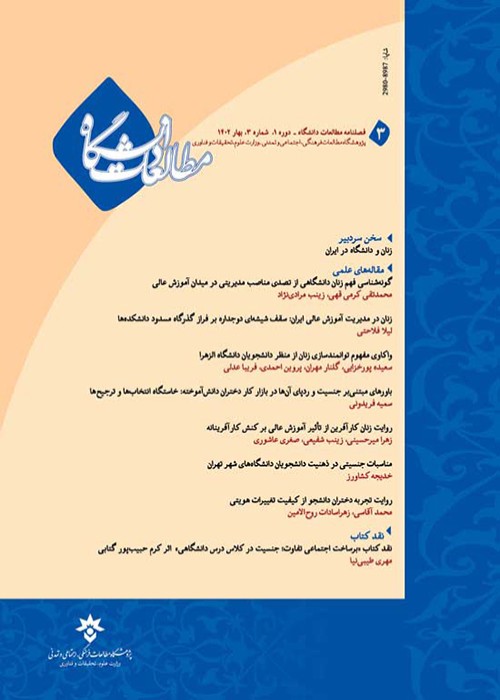Structural analysis of "higher education" as a social system: Qualitative research on the pathology of Razi University
Despite the different advantages and challenges of the provinces, decisions have been made mainly based on short-term goals and in some cases based on the organizational utilitarianism or on a larger level based on the relationships of higher education sub-systems with political currents and governments. This have revealed the need to rethink and adopt a different approach. Higher education is facing serious problems and damages in terms of structure and function. At the macro level, coordination with other micro systems and external efficiency are criticized. Within the system, from a functional point of view, higher education is far from the set goals, and only on a quantitative level, and not compared to the global standards of scientific communities, it has achieved the goals to some extent. The price of this quantitative growth is the drop in the quality level in most fields and all levels. However, administrators, busy with daily affairs and researchers have mainly studied the micro-issues of higher education and not its entirety. This article tries to analyze the internal logic of the higher education system (Razi University) and its relationship with its environment. According to the evidence, the problems of the higher education system have been reproduced in all its components.
According to the goals of this research, we have used the qualitative method, especially the "oral data analysis" (Flick, 2017) resulting from in-depth interviews. The interviews were conducted individually and in total, including 24 cases of former and current administrators of the university and several experts, in both face-to-face and virtual ways. The propositions received at three levels of macro, middle and micro and in different fields are presented in the form of narrative propositions based on concepts and final categories in the text.
lack of academic independence, politicization of the university, lack of budget, defective power distribution, lack of management knowledge, non-participatory management, centralization, problematic selection system (management field); The problem of public education, extreme tendency towards medical sciences, degreecism, the predominance of traditional tendencies in education, ... (field of education); The politicization of research, the quantitative approach, the government funding, the lack of external research demand, the extreme tendency to write Article (research field); Cultural reductionism, lack of social space, weak cultural capital of board members, lack of demandingness (cultural field); Low level of public sports, relative poverty of students, lack of public space for students, interaction problems of employees, lack of trust of students (student area); Lack of positive attitude towards science in society and organizations, decline of the university's position in society, lack of feeling of society's need for research, lack of advanced industries, incorrect interactive relationships, bureaucracy, non-professional public relations (interactions).
macro-level damages have played a more important role in creating the current situation. Obstacles and problems of the middle level are second, and micro levels have played the least role. Among the fields, the problems are mainly concentrated in the field of management and research and the field of culture and interaction with the society. The interviewees' view of the future is not very optimistic.
- حق عضویت دریافتی صرف حمایت از نشریات عضو و نگهداری، تکمیل و توسعه مگیران میشود.
- پرداخت حق اشتراک و دانلود مقالات اجازه بازنشر آن در سایر رسانههای چاپی و دیجیتال را به کاربر نمیدهد.



